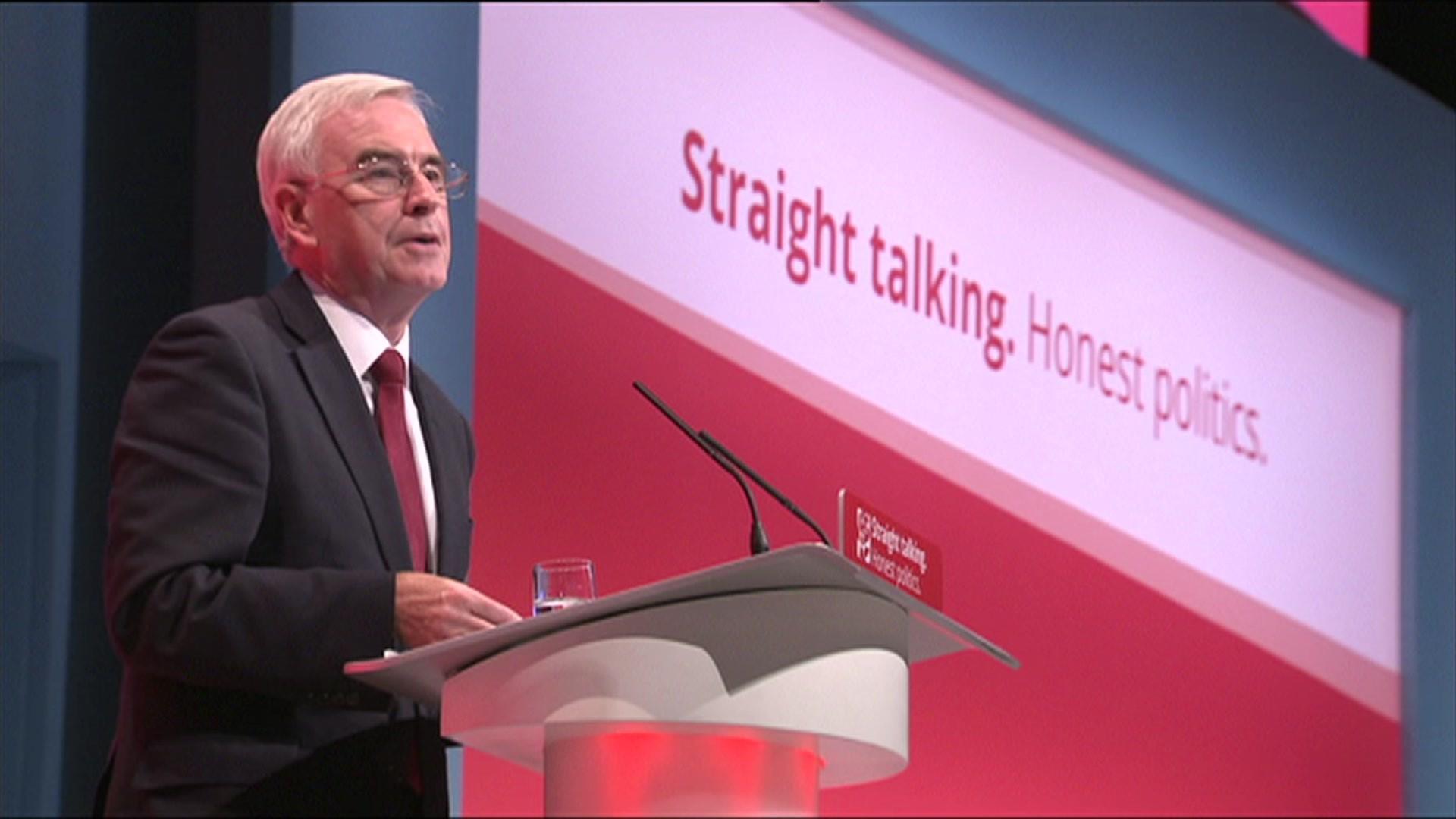What we learnt about Labour's economic policy from McDonnell's speech
- Published
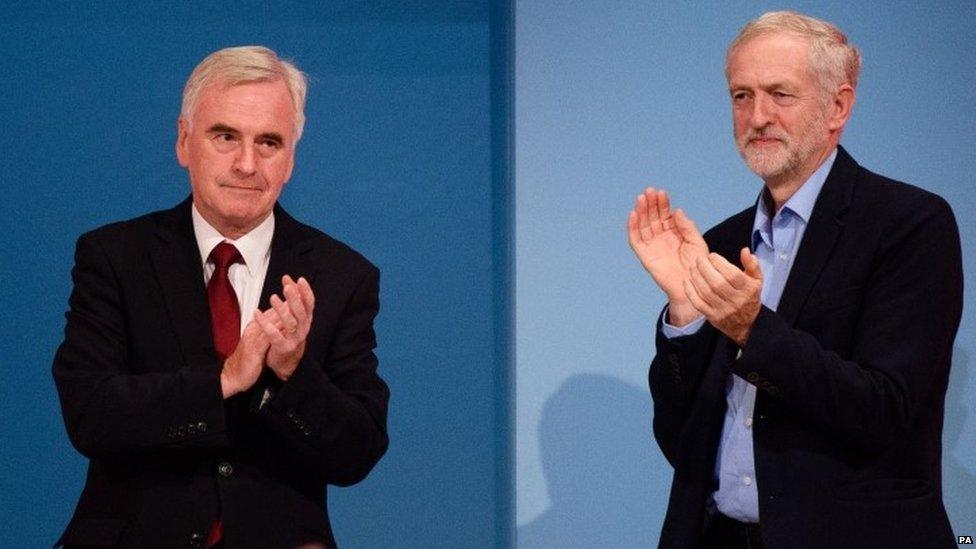
Shadow Chancellor John McDonnell has set out his thinking on Labour's economic agenda. What did we learn from his speech to the party's conference.

He is anti-austerity and he means it
In recent years, we became used to hearing Ed Balls (McDonnell's predecessor as shadow chancellor) attack the government's policies but also speak of the need for tough decisions about public spending and the inevitability of cuts - an approach derided as "austerity-lite" by critics.
While John McDonnell also emphasised the need to reduce the deficit and "live within our means", his language was very different. There was little or no mention of cuts and he made it clear Labour would further slow down the pace of deficit reduction.
Instead, there was a pledge to support public services, protect numbers of police officers, nurses and teachers, to reverse reductions in tax credits and a promise to tackle so-called "corporate welfare" - tax incentives for buy-to-let landlords and subsidies for firms providing back-to-work support and training.
The country, he suggested, could grow its way to greater prosperity through investment in key industries and a greater role for the state in spending on research, skills and technology. The benefits of this growth would be spread across the whole of the UK, he said, and not - in a veiled reference to the south of England - used to fuel another housing and credit boom and an "insecure" service sector.

Multinational firms and the better-off can expect to pay more tax
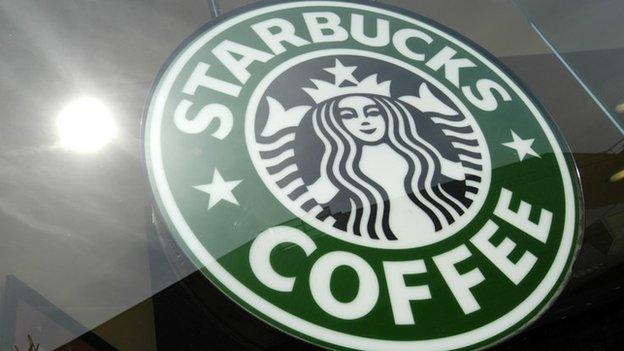
McDonnell has already suggested he is in favour of firms paying more in corporation tax and today he went a step further by serving notice that he would be coming after the likes of Starbucks, Vodafone, Google and Amazon to contribute more, or what he described as their "fair share".
He reckons as much as £25bn of the UK's estimated £125bn "tax gap" from tax avoidance and evasion could be recovered if Revenue and Customs upped their game and the tax collection system was modernised. The government thinks this figure is much lower, while the free market think-tank, the Institute for Economic Affairs, said this was not credible "unless one defines tax avoidance to include stacks of activities which the government currently incentivises".
Although he did not mention it in his speech, Mr McDonnell also said on Sunday he would like to introduce a financial transactions tax although, like many other policy suggestions, this will be subject to a review.
McDonnell also took aim at the 1% richest in society, whom he suggested had benefited disproportionately under a Conservative government. He suggested a future Labour government would reverse planned changes to inheritance tax.

He is not happy with the Bank of England
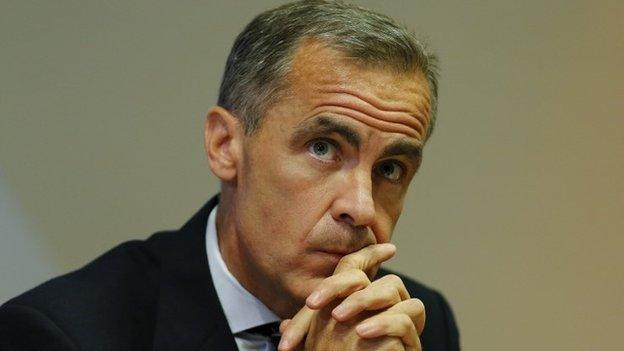
Mr McDonnell has criticised Mark Carney for failing to meet inflation targets
As a backbencher, McDonnell sought to pass a law to elect the Governor of the Bank of England. Now, he has called for a debate on the organisation's remit to determine that it is "fit for purpose" and to look at whether it could be more effective.
The Bank, under its Canadian Governor Mark Carney, has become accustomed to missing its inflation targets over recent years (under-shooting generally), although it has argued that we are living through exceptional economic times.
But McDonnell thinks it's time to review its overall mandate, which focuses on trying to get the UK inflation rate to be 2%. He says it should include other factors such as growth, earnings and employment.
Although he insists this will not threaten its independence to set interest rates, he has also called for a national discussion on monetary policy while insisting that the Bank and and the Office for Budget Responsibility make available details of their economic modelling to the opposition.

The state will have a greater role
Quoting one of his new team of high-profile economic advisers, Mr McDonnell said his goal was to create an "entrepreneurial state".
But he noticeably had more to say about the role of the state as a partner and catalyst for increased productivity, innovation and new markets than the role of the private sector itself as a driving force.
Among other things, he suggested the state had a role to play in guaranteeing housing, infrastructure planning, setting new standards in the labour market, controlling rents, tackling the gender pay gap and promoting public and mutual forms of ownership.
He also earmarked a greater role for the trade unions in the workplace, with their rights restored and extended.

What did we already know about Mr McDonnell's intentions?
He has already said he would like to increase the top rate of income tax from 45% to 50% - a policy backed by his predecessor Ed Balls. On Monday, he reiterated again that any tax rises needed to pay down the deficit would be "fair and progressive" and he told ITV News putting it up to 60% "will be part of the debate we have".
He is a leading advocate of "People's Quantitative Easing" - effectively forcing the Bank of England to print money to buy assets, the proceeds being used to fund investment in key infrastructure. Speaking on Monday, he suggested that he would only resort to this if economic conditions necessitated it and that, aside from that, he would rely on traditional forms of borrowing to fund spending.
Although there has been some uncertainty about Labour's plan on welfare, Mr Corbyn has indicated he opposes the government's plans to reduce the household benefit cap to £20,000 outside of London and £23,000 in London and would seek to abolish the cap altogether.

What are others saying?
The BBC's political editor Laura Kuenssberg: Mr McDonnell and Mr Corbyn want to raise taxes on the City, get businesses and the wealthy to pay more of their fair share of tax. But crucially, he believes Labour can balance the books and rejects accusations he's a "deficit denier". He knows it is important for the public and the rest of the party that he is seen to be trying to stitch the party's economic credibility back together. Read more from Laura
The BBC's economic editor Robert Peston: One criticism levelled at Jeremy Corbyn and his shadow chancellor John McDonnell both by the Tories and centrist members of his own party is that they are left-wing dinosaurs. They've today gone some way to answering that charge by recruiting some of the world's most influential left-wing economists to an advisory panel. Read more from Robert
The CBI's director general John Cridland: The shadow chancellor was strong on intent but has not yet provided great detail on how he intends to deliver his plans. The overall impression of this speech was of rather more intervention in the world of business and the economy. What's clear to us is that you can't be pro-growth and pro-jobs without being pro-business.
Treasury minister David Gauke: Labour's tax rises would hurt hardworking people, threatening every family's security. And as Mark Carney has said, Labour's policy to end the Bank of England's independence and print money would drive up the cost of living
- Published28 September 2015
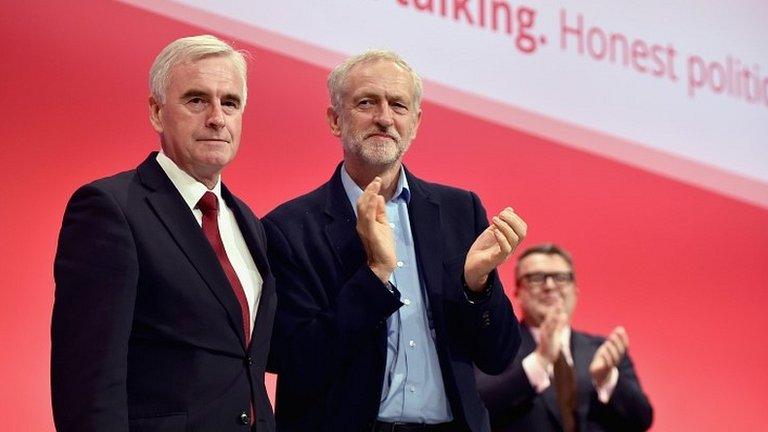
- Published28 September 2015
